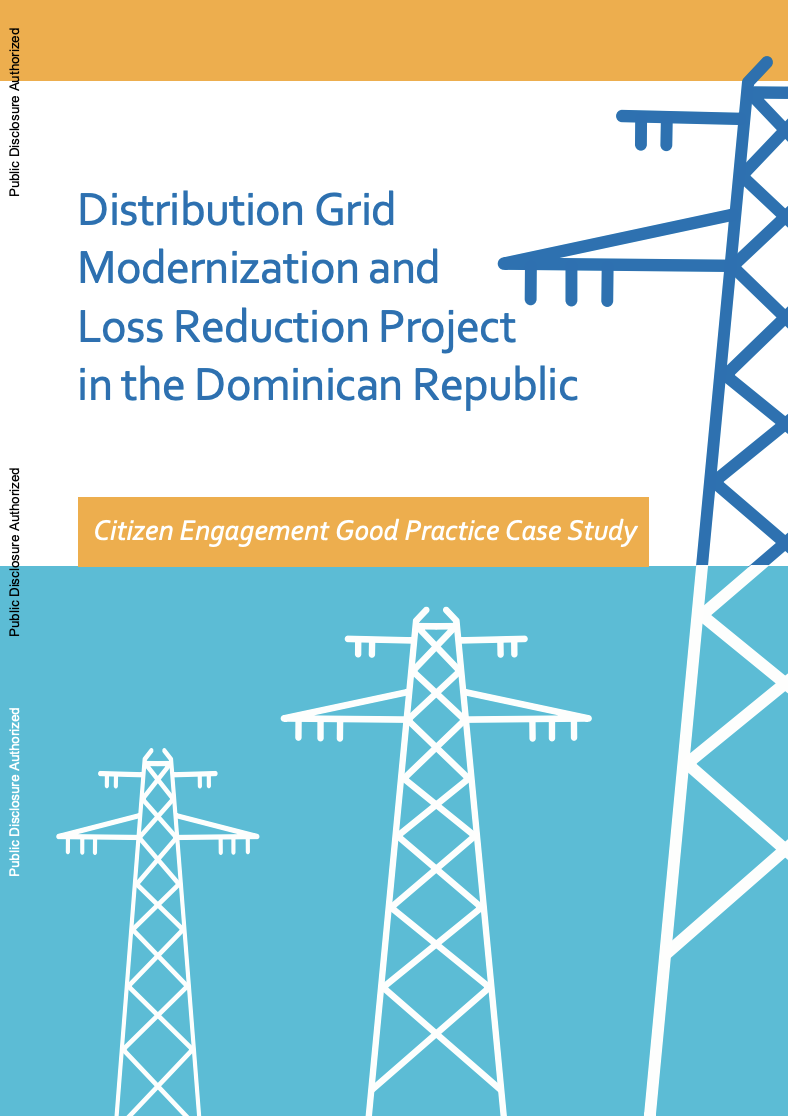Rehabilitating electrical distribution circuits and upgrading electricity metering systems, may seem, at first sight, an undertaking which has little to do with citizen engagement. However, in the World Bank-financed Dominican Republic Distribution Grid Modernization and Loss Reduction Project, the project team and implementing agencies realized early on that strong citizen engagement and community participation was going to be indispensable to achieving the project’s desired results of increasing revenue collection for the country’s electricity distribution companies and reducing energy losses. As a result, they developed a unique and ambitious outreach program to involve communities and implement the project in direct collaboration with beneficiaries from targeted neighborhoods. The project stands out for the way in which it has fully folded citizen engagement into its theory of change and addressed technical and social issues as joint challenges. It may inspire other projects to proactively seek to identify areas where lack of engagement acts as a binding constraint and to craft strategies to empower beneficiaries and project-affected people and make them co-owners of the project’s outcomes.
Distribution Grid Modernization and Loss Reduction Project in the Dominican Republic
Citizen Engagement Good Practice Case Study
April 3, 2024

